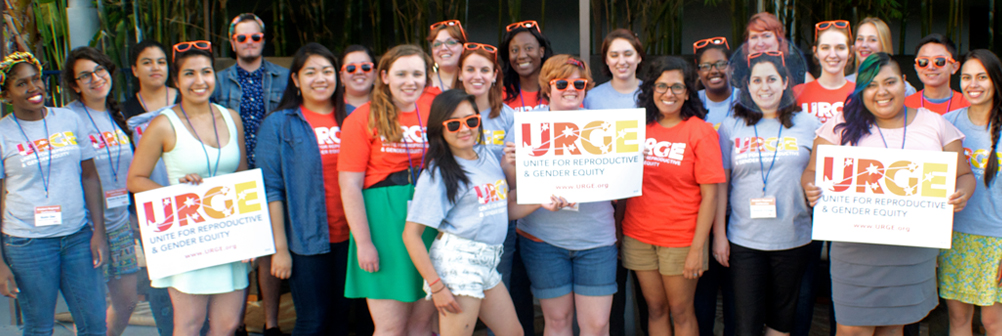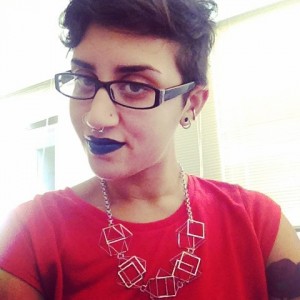Alumni Spotlight: Dakota David
American University, 2014, Women’s, Gender, and Sexuality Studies & Public Health
How were you involved with URGE?
I was the Field and Training intern during the (incredibly short) summer of 2013. It was a magical time of nonstop work and endless goofiness while prepping for the Gloria Steinem Membership Conference that year. I had worked with URGE through my Students for Choice group on campus previously, and this internship allowed me to expand upon all that I had helped build on campus and develop my own skills as a trainer and leader.
What do you do now and how do you bring a reproductive justice frame to the work you do?
I am the Training Manager at the National Abortion Federation Hotline. The Hotline offers crisis counseling, clinic referrals, and limited financial assistance for those who qualify and I train all the incoming Intake Counselors on sexual health, anti-oppression, counseling, and the state of abortion access across the country. The facilitation and training development skills I draw from come largely from my time at URGE. From Day One in my training we utilize the reproductive justice framework in our approach to empathizing with patient’s experiences and informing our approach to patient care. The Hotline’s work assisting those seeking abortion care is just one (surprisingly small) piece of the political puzzle to allow all beings the freedom, power, and autonomy over their bodies and reproduction.
What skills or knowledge did you learn from URGE that you use in your current work/life?
While I left URGE a stronger facilitator and organizer, and could list off the hard and soft skills I still utilize in my job today, it was each of the dedicated and gracious staff at URGE that made my experience so meaningful. Every person at URGE took their time to get to know me and collectively showed me that the reproductive justice movement isn’t defined by what it’s against — reproductive oppression. This movement is defined by the freedom, joy, and happiness we bring simply by living in a world that tells us otherwise, and that started with the genuine love and honesty each person brought to their work and each other at URGE.
What are your top priorities in politics and/or reproductive justice?
Currently, my personal mission is to fuse the reproductive justice and harm reduction movements. We have similar goals of bodily autonomy for all, harm reduction just emphasizes individual safety and meeting people where they are at. This can look like birth control, seat belts, or syringe exchanges, instead of the all out bans on evidence-based comprehensive sex ed or the criminalization of sex work, which we know will never be successful and does immense harm in the meantime. Harm reduction, just like reproductive justice, recognizes that people may put their health or well-being at risk (for whatever reason) and seeks to provide as much information as possible to allow those individuals to make informed decisions about their health, their bodies, their families, and their communities.
Who inspires you?
OMG, my AMAZING friends! My social worker BFFL in Alabama battling stigma alongside her HIV-positive clients; my tea time buddy in Baltimore training frontline hospital staff on LGBTQ cultural competency; my dear friend in Minneapolis navigating her own mental health struggles while supporting her clients and coworkers; my DC harm reduction trainer and policy powerhouse BFFLs – each of them give so much of themselves for the critical work they do, the organizations that are lucky to have them, and the individual people they support in their lives, professionally and personally. I see each of them, and they inspire me every single day. We invest in ourselves when we invest in our community, and I am so grateful for mine.


